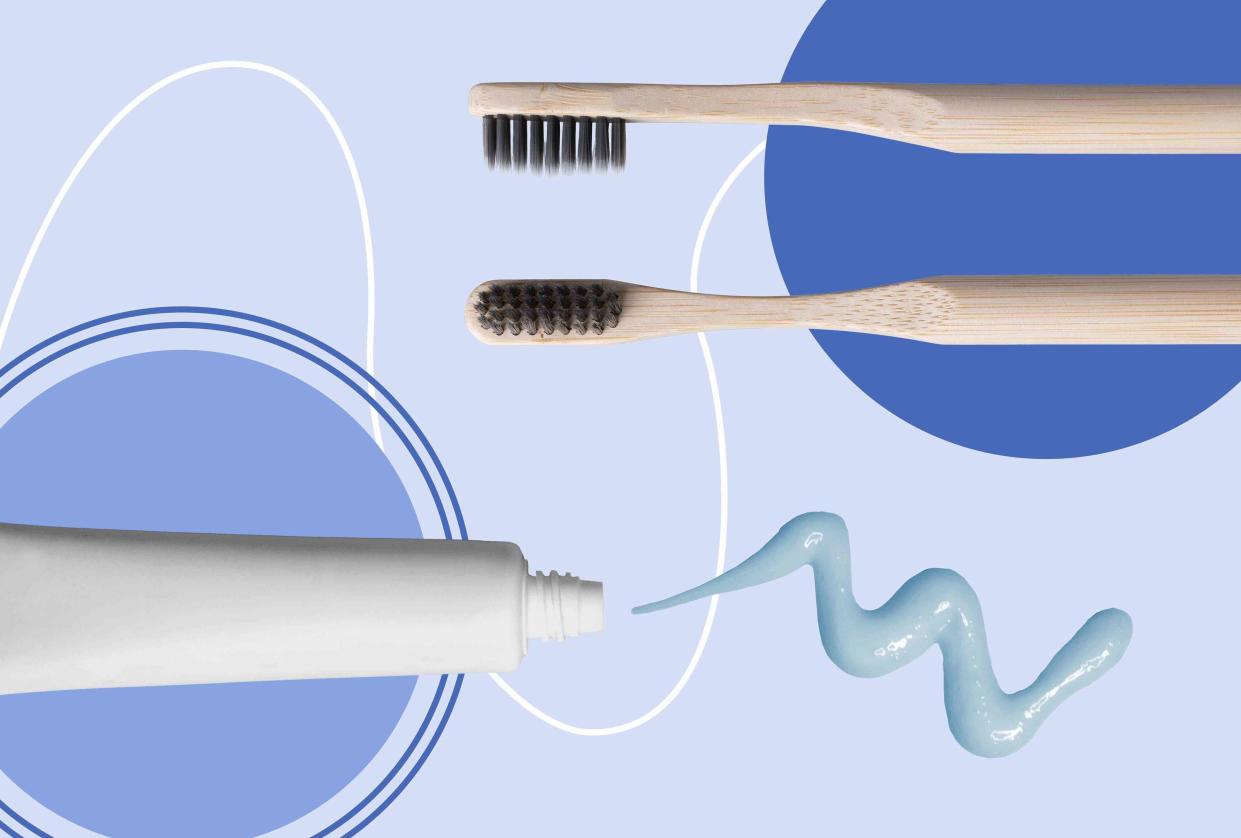Are You Brushing Your Teeth Too Much?

Fact checked by Nick Blackmer
Key Takeaways
Brushing your teeth too hard or too often can wear down tooth enamel, leading to sensitivity and pain, and it can also cause receding gums by exposing the root area.
It’s best to brush between two and three times per day, for two whole minutes, using a soft-bristle brush to make gentle, circular motions.
You should always wait 30 minutes after eating before brushing your teeth, as brushing immediately after an acidic meal can weaken and damage the tooth’s enamel.
We all have that friend who takes meticulous care of their teeth, consistently flossing and brushing after every snack and meal. But as it turns out, over-brushing your teeth isn’t good for your dental health.
“The truth is that, yes, you can brush your teeth too much,” Jessica Tasios, DDS, a dentist at Ora Dental in Toronto, told Verywell.
Brushing your teeth too much can wear down your enamel and cause receding gums, Tasios said. This is called toothbrush abrasion, which can happen when you brush your teeth too often or too hard.
“There isn’t a maximum number of times to brush your teeth, but generally brushing them more than three times a day is unnecessary and could prove harmful,” Tasios said. “Brushing too hard or too much can cause your teeth to become more sensitive and can also damage your gums by causing them to recede and expose the root area.”
How Often Should You Brush Your Teeth?
You should always brush your teeth at least twice a day, in the morning and at night, according to Sean Kutlay, DDS, a dentist based in California. But he and his colleagues brush three times daily (once after each meal), which is the optimal number of times.
But Tasios said that dentists realize this is unrealistic for many people who are not at home at lunchtime, so twice should be the absolute minimum. Brushing fewer than twice a day can lead to bacteria build-up, cavities, and gum disease.
According to some research, under-brushing can impact more than just your oral health. One recent study found that skipping nightly toothbrushing may heighten heart disease risk, while other studies have suggested it could lead to dementia, arthritis, and pancreatic cancer.
The American Dental Association also recommends waiting at least 30 minutes after eating a meal before brushing. This, according to Kutlay, is because brushing immediately after an acidic meal or drink can be very harmful to your teeth.
Acid weakens the tooth’s protective enamel, and adding abrasion to the equation can damage it, Tasios explained.
“Some people may eat or drink something high in acid with their meal, like orange juice, or a tomato,” she said. “Waiting a half hour gives the enamel time after consuming the acid to remineralize so brushing doesn’t cause damage.”
How Can You Brush Your Teeth Properly?
The best way to brush your teeth, Kutlay said, is by creating a circular motion with a soft-bristled toothbrush, making sure to brush the gum line and all tooth surfaces.
“To get rid of any food bits that might be stuck between the teeth, flossing is also crucial after cleaning,” he said. “It’s also crucial to change your toothbrush every three to four months and to brush gently in order to protect your gums.”
Tasios added that it’s important to use fluoride toothpaste and brush for two minutes, but some of her patients often rush through the process.
“They are in a hurry, scrub their front bottom and top teeth, give a quick once over the top to the back teeth, and off they go,” she said.
But taking the time to brush each tooth thoroughly and carefully, she said, is the best prevention against cavities and tooth decay.
What This Means For You
If you’re someone who has a habit of brushing after everything you eat or brushing very hard, you may want to change your approach. Try gently brushing between two and three times per day, making circular motions with a soft-bristle brush, for periods of two minutes. And don’t forget to floss.

